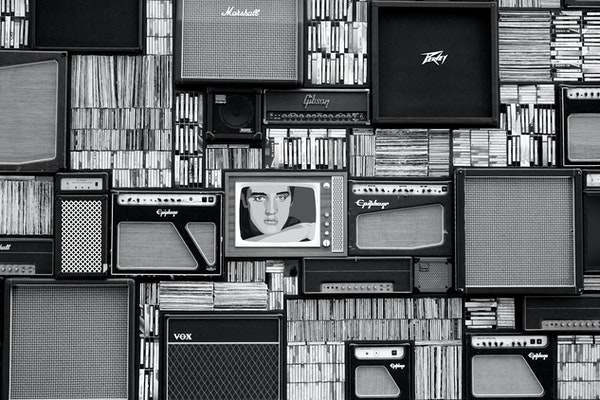Humans are given a finite amount of time and energy. These days, most people in the US have developed a habit of frayed focus, which dilutes both time and energy. While watching Grey’s Anatomy on Hulu you can also be looking up what other movies Sandra Oh has been in on IMDB while checking your bank account balances on the Mint.com Android app, texting your best friend, and painting your toe nails. Not that I’ve ever done that before. Or yesterday. As a non profit credit counseling agency, ACCC finds the concept of information over-consumption and spending interesting.
Information and the Focus Deficit
Quantifying how much media and overall information we consume daily is really difficult. Quantifying how much is available feels nearly impossible. In a world of information without borders, humans must adapt to the changing information landscape. When the world is our oyster, we have to actively choose what to focus on because there are no longer any barriers except for our own free will.
It hasn’t always been this way. Recently, I was staying with some close friends in their late 50’s. 25 years ago, as Bob fed baby Katie in the middle of the night, he had only static on NBC to keep him company. No 24 hour news cycle. No late night Comedy Central. Just static and a baby bottle.
Information Over-consumption and Spending
Information Over-consumption disintegrates our ability to make discerning choices expediently. Or ever. Since many of us haven’t developed sufficient filters to protect from information over-consumption, we are susceptible to huge numbers of influences. Currently, the internet pretty much runs on advertising. (Doesn’t it always seem to come back to advertising?) Pop-ups on YouTube, company logos in our peripheral vision on Hulu, sidebar ads on Google and Facebook. All attracting our subconscious attention. Advertising can lead us to spend more, and possibly fall into credit card debt.
But it’s not all about advertising. Our decision making ability becomes weaker in the face of unlimited choices. By becoming more active in deciding what information we allow into our system, the stronger our decisions become and the more authentic our choices become to our true wants and needs.
Information Obesity
As Clay Johnson, the author of Information Diet, expresses, when somebody is overweight we don’t blame the chicken wings for flying into a person’s mouth. Similarly, we can’t blame the abundance of information for our poor usage or binging habits. And just as we teach ourselves how to eat the correct proportion of vegetables to protein to grains, we much teach ourselves healthy habits in regards to information consumption.
In Weight Watchers, participants track each morsel of food they eat. As an experiment, track how long you spend on the internet (and which sites/ which tasks) for a few days. Track how much you listen to the radio and how much you watch television. Track how often you check your email. Maybe you actually write it down, or to start out just pay attention and see if you notice patterns. When you start observing yourself rather than passively consuming you can pinpoint habits that you don’t feel make you healthy or happy. From that knowledge you can work towards change.
We talk about wants and needs a lot on this blog, and understanding these factors that contribute to our perception of want and need is a way to refine our mental system to calibrate want/need in a healthier and more authentic way.
If you’re struggling to pay off debt, ACCC can help. Schedule a free credit counseling session with us today.






